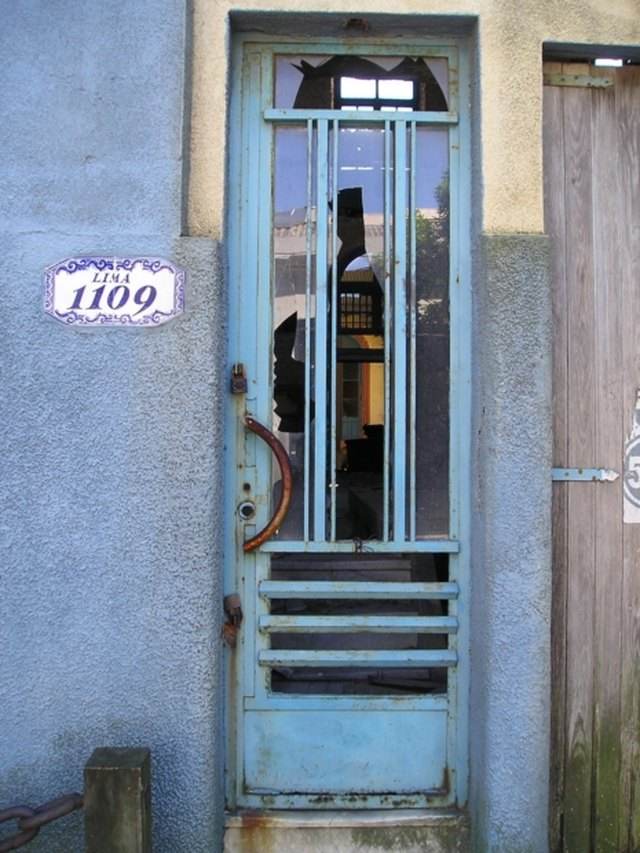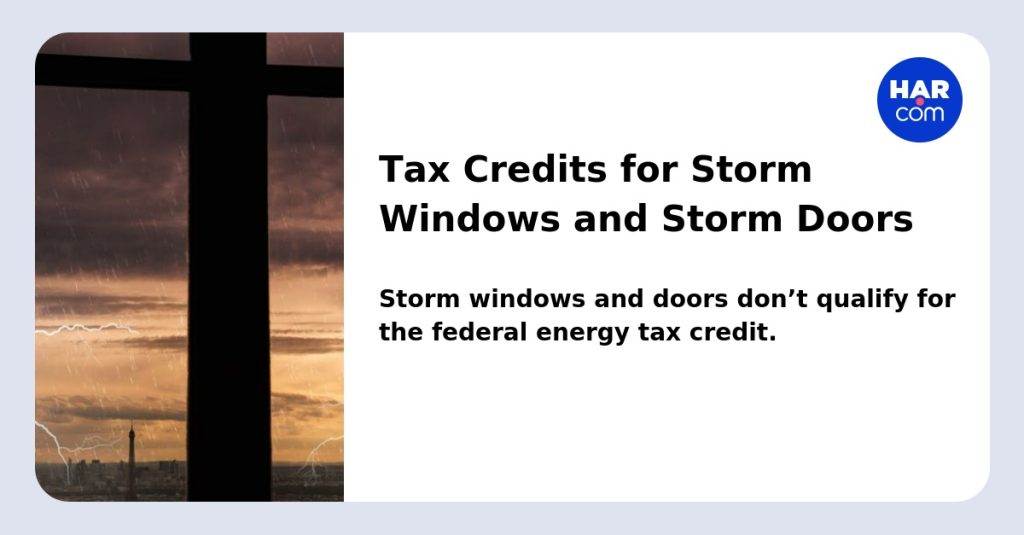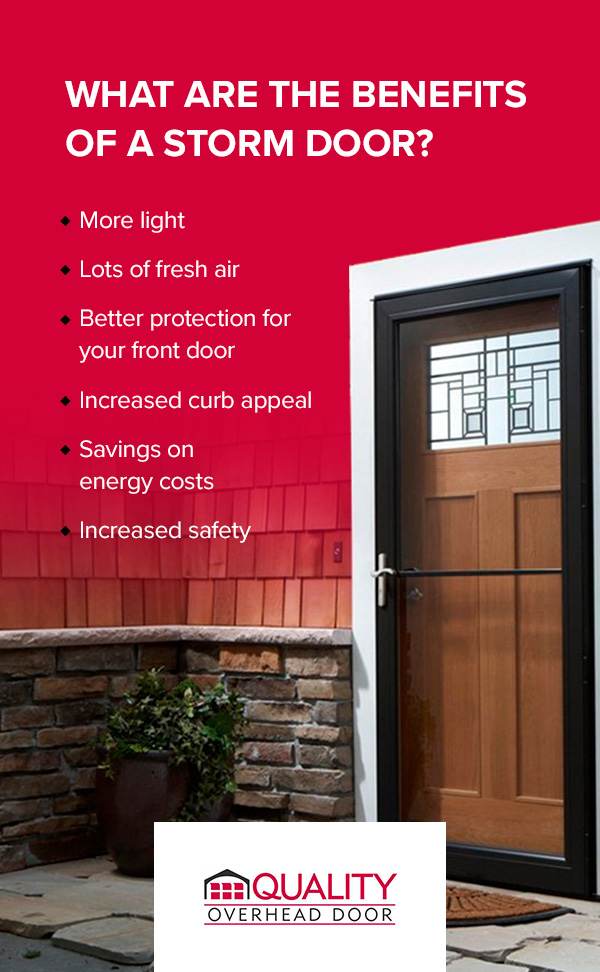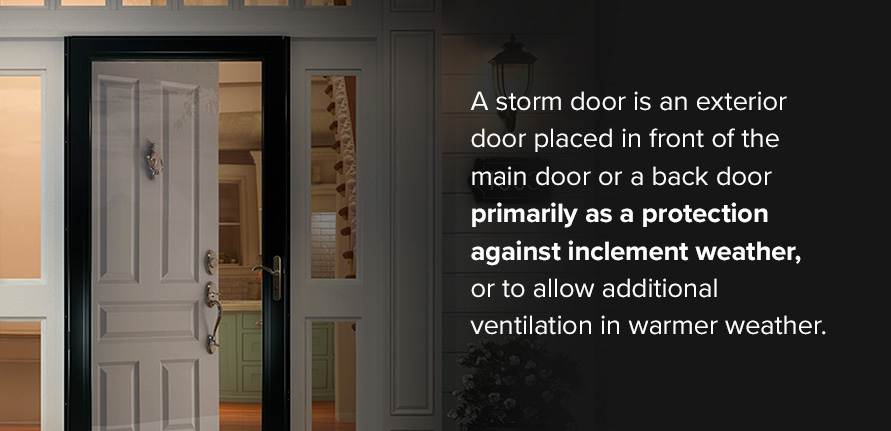Storm doors are a popular addition to many homes, providing additional protection from the elements and added security. However, as homeowners, we often wonder about the financial implications of such upgrades. Can we potentially save some money by making storm door purchases tax deductible? In this article, we will explore whether or not new storm doors are eligible for tax deductions, shedding some light on this common question for homeowners.
1. Introduction
1.1 What are storm doors?
Storm doors are additional exterior doors that are installed in front of or behind the main door of a house. They are designed to provide an extra layer of protection against the elements, such as rain, wind, snow, and even pests. Storm doors typically have a full- or half-glass panel, allowing natural light to enter while preventing unwanted drafts and heat loss.
1.2 Importance of storm doors
Storm doors offer several benefits to homeowners. Firstly, they act as a barrier against harsh weather conditions, helping to increase energy efficiency and reduce utility bills. They can also enhance the security of a home by providing an additional layer of protection against intruders. In addition, storm doors can improve ventilation, allowing fresh air to circulate into the house. Lastly, they can add aesthetic appeal to the entryway, with various styles and designs available to suit different architectural styles.
1.3 Tax deductions – An overview
Tax deductions are one way homeowners can potentially save money on their taxes. By reducing the amount of taxable income, deductions can lower the overall tax liability. However, not all expenses are eligible for deductions, and it is important to understand the specific criteria and requirements set by the Internal Revenue Service (IRS).
2. Understanding Tax Deductions
2.1 What are tax deductions?
Tax deductions are certain expenses that can be subtracted from a taxpayer’s income, resulting in a lower taxable income. They are designed to provide relief for various expenses incurred throughout the year. These deductions can be claimed on a federal income tax return, potentially reducing the amount of tax owed or even resulting in a tax refund.
2.2 How do tax deductions work?
When filing taxes, taxpayers have the option to claim the standard deduction, which is a fixed amount set by the IRS, or to itemize their deductions. Itemized deductions involve listing specific expenses to be deducted, such as mortgage interest, medical expenses, and charitable contributions. If the total amount of itemized deductions exceeds the standard deduction, it is beneficial to itemize.
2.3 Common examples of tax deductions
Some common examples of tax deductions include mortgage interest, property taxes, state and local income taxes, medical expenses exceeding a certain threshold, charitable contributions, and certain job-related expenses. These deductions can vary depending on the taxpayer’s circumstances and changes in tax laws.

This image is property of img.saplingcdn.com.
3. Tax Deductions for Home Improvements
3.1 Home improvement tax deductions
Homeowners may be eligible for tax deductions on certain home improvements, depending on the purpose and nature of the improvement. Home improvements that increase the value, prolong the life, or adapt a home to new uses can potentially qualify for deductions. These deductions can be beneficial in reducing tax liability and improving the return on investment for home improvement projects.
3.2 Qualifying for tax deductions
To qualify for tax deductions on home improvements, certain criteria must be met. The improvement must be made to the taxpayer’s primary residence or a second home, not to a rental property. Additionally, the improvement must be considered a capital expense, as opposed to ordinary repairs or maintenance. Capital expenses involve substantial investments and are expected to last for a significant period of time.
3.3 Storm doors and their eligibility for tax deductions
Storm doors, being a home improvement, may qualify for tax deductions under certain circumstances. The eligibility of storm doors for deductions depends on factors such as energy efficiency and adherence to specific guidelines outlined by the IRS for home improvements. It is important to consult tax professionals or refer to IRS guidelines to determine the exact eligibility criteria for storm doors.
4. Eligibility Criteria for Tax Deductions
4.1 Qualified residence
To claim tax deductions for home improvements, the improvement must be made to a qualified residence. A qualified residence includes the taxpayer’s main home and a second home, such as a vacation home. However, rental properties or investment properties are not considered qualified residences for the purpose of tax deductions.
4.2 Capital expenses
To be eligible for tax deductions, home improvements must be considered capital expenses, rather than ordinary repairs or maintenance. Capital expenses are those that add value to the property, adapt it to new uses, or extend its useful life. Storm doors, being a substantial investment and a permanent addition to the home, may qualify as capital expenses.
4.3 Energy efficiency requirements
Certain home improvements, including storm doors, may be eligible for tax deductions if they meet specific energy efficiency requirements. The IRS provides guidelines and specifications for energy-efficient improvements that qualify for deductions. These guidelines are subject to change, so it is important to stay informed about the latest requirements when considering energy-efficient storm doors for tax deductions.
4.4 Limits on tax deductions
There are limits on the amount of tax deductions that can be claimed for home improvements. The IRS sets limits based on various factors, such as the type of improvement and the taxpayer’s income. It is crucial to understand these limits and consult with tax professionals or refer to the IRS guidelines to ensure compliance and maximize eligible deductions.

This image is property of content.harstatic.com.
5. Understanding Storm Doors
5.1 What is a storm door?
A storm door is an additional exterior door installed in front of or behind the main door of a house. It is designed to provide an extra layer of protection against the elements, such as rain, wind, and snow. Storm doors typically have a full- or half-glass panel, allowing natural light to enter while preventing drafts and heat loss. They can be made of various materials, including aluminum, steel, or wood, and come in a wide range of styles and designs to suit different architectural preferences.
5.2 Types of storm doors
There are several types of storm doors available, each with its own unique features and benefits. Full-view storm doors have a full glass panel that provides an unobstructed view when the main door is open. Ventilating storm doors have a glass panel with an adjustable screen, allowing for increased airflow and ventilation. Security storm doors are designed with reinforced frames and locks to enhance home security. Other variations include retractable screens, pet doors, and decorative designs.
5.3 Benefits of installing storm doors
Installing storm doors offers a range of benefits for homeowners. One of the key advantages is increased energy efficiency. Storm doors act as a barrier against drafts and help to reduce heat loss during colder months, leading to potential energy savings and lower utility bills. Additionally, storm doors provide an added layer of protection against the elements, including rain, wind, and snow, which can help extend the lifespan of the main door. They can also enhance home security by acting as a deterrent to potential intruders. Moreover, storm doors allow for improved natural light and ventilation, creating a more comfortable living environment.
6. Tax Deductibility of Storm Doors
6.1 Storm doors as capital expenses
Storm doors, being a substantial investment and a permanent addition to a home, have the potential to qualify as capital expenses. Capital expenses are considered eligible for tax deductions, as they add value to the property, adapt it to new uses, or extend its useful life. Homeowners should consult tax professionals or refer to IRS guidelines to determine the exact tax deductibility of storm doors as capital expenses.
6.2 Energy-efficient storm doors
Energy-efficient storm doors may offer additional tax benefits. The IRS provides guidelines and specifications for energy-efficient improvements that qualify for tax deductions. Energy-efficient storm doors can help improve the overall energy efficiency of a home, reducing heat loss and potentially resulting in lower energy bills. Homeowners should ensure that their chosen storm doors meet the specific energy efficiency requirements outlined by the IRS to maximize potential tax deductions.
6.3 Qualifying for tax deductions
To qualify for tax deductions on storm doors, homeowners must meet the eligibility criteria set by the IRS. This includes factors such as the storm doors being installed in a qualified residence, considered capital expenses, and meeting energy efficiency requirements. It is crucial to carefully document and retain all necessary documentation, such as receipts and proof of compliance with energy efficiency criteria, to support the claims for tax deductions.
6.4 Limitations and exclusions
It is important to be aware of any limitations or exclusions that may apply to tax deductions for storm doors. The IRS sets limits on the total amount of deductions that can be claimed for home improvements, and these limits are subject to change. Additionally, certain expenses may be excluded from deductions, such as ordinary repairs or maintenance. Homeowners should consult with tax professionals or refer to IRS guidelines to ensure compliance with any limitations or exclusions that may affect the tax deductibility of storm doors.

This image is property of www.qualityoverheaddoor.com.
7. Documentation and Filing Requirements
7.1 Required documentation
To claim tax deductions for storm doors, homeowners should ensure they have the necessary documentation to support their claims. This may include receipts or invoices for the purchase and installation of the storm doors, as well as any documentation indicating compliance with energy efficiency requirements. It is important to retain these documents for future reference and potential IRS audits.
7.2 Appropriate IRS forms
When filing taxes, homeowners should use the appropriate IRS forms to claim deductions for storm doors. The specific form required may depend on the taxpayer’s individual circumstances and the nature of the deduction being claimed. Commonly used forms for itemized deductions include Form 1040 and Schedule A. Homeowners should consult with tax professionals or refer to IRS guidelines to determine the correct forms to use when claiming deductions for storm doors.
7.3 Filing procedures
To claim tax deductions for storm doors, homeowners should follow the proper filing procedures outlined by the IRS. This includes accurately completing the necessary forms, attaching any required documentation, and submitting the forms within the designated filing period. Filing procedures may vary depending on the taxpayer’s specific circumstances and any changes in tax laws. It is advisable to consult with tax professionals or refer to IRS guidelines for the most up-to-date and accurate information on filing procedures.
8. Other Considerations
8.1 State and local regulations
While federal tax deductions are applicable to storm doors meeting specific criteria, it is important to consider state and local regulations as well. Different states or municipalities may have their own tax laws and regulations regarding deductions for home improvements and storm doors. Homeowners should research and familiarize themselves with any state or local tax laws that may apply to ensure compliance and maximize eligible deductions.
8.2 Additional tax credits
In addition to tax deductions, homeowners may also be eligible for certain tax credits related to energy-efficient home improvements. Tax credits directly reduce the amount of tax owed, providing an even greater financial incentive for investing in energy-efficient storm doors. These credits are subject to specific requirements and limitations, and homeowners should consult with tax professionals or refer to IRS guidelines to determine potential eligibility for additional tax credits.
8.3 Consultation with tax professionals
Given the complexity of tax laws and regulations, it is highly recommended to consult with tax professionals when considering tax deductions for storm doors. Tax professionals can provide expert guidance and advice tailored to each homeowner’s specific circumstances, ensuring compliance with IRS guidelines and maximizing eligible deductions. They can also help navigate any complex filing procedures or state and local tax regulations.

This image is property of www.qualityoverheaddoor.com.
9. Case Studies
9.1 Real-life examples of storm doors and tax deductions
To illustrate the potential benefits and limitations of tax deductions for storm doors, let’s consider a few real-life examples. In one scenario, a homeowner installs an energy-efficient storm door on their primary residence, meeting all the criteria set by the IRS. This homeowner may be eligible for tax deductions on the cost of the storm door as a capital expense and potentially additional tax credits for energy efficiency.
In another scenario, a homeowner installs a storm door on a rental property. In this case, the storm door would not qualify for tax deductions as it is not considered a qualified residence. However, the homeowner may still be eligible for deductions and credits on other eligible expenses associated with the rental property, such as repairs or improvements.
9.2 Benefits and limitations in specific scenarios
The benefits and limitations of tax deductions for storm doors can vary depending on the specific circumstances of each homeowner. Homeowners who meet the eligibility criteria and invest in energy-efficient storm doors for their qualified residence can potentially benefit from tax deductions, reducing their overall tax liability. However, it is important to consider any limits or exclusions that may apply to deductions and consult with tax professionals to ensure compliance and maximize eligible benefits.
10. Conclusion
10.1 Summary of key points
In conclusion, tax deductions offer homeowners the opportunity to potentially save money on their taxes by deducting eligible expenses. Storm doors, as home improvements, may qualify for tax deductions if certain criteria are met. Homeowners must ensure their storm doors are installed in a qualified residence, considered capital expenses, and meet energy efficiency requirements outlined by the IRS. It is crucial to retain proper documentation and follow the appropriate filing procedures to support claims for deductions.
10.2 Final thoughts on storm doors and tax deductions
Tax deductions for storm doors can provide financial benefits for homeowners, reducing tax liability and improving the return on investment for home improvements. However, it is important to carefully review IRS guidelines, consult with tax professionals, and consider state and local regulations when determining eligibility for deductions. By understanding the requirements and maximizing eligible deductions, homeowners can potentially capitalize on the benefits of storm doors while enjoying increased energy efficiency, improved security, and enhanced aesthetics in their homes.

This image is property of www.qualityoverheaddoor.com.
